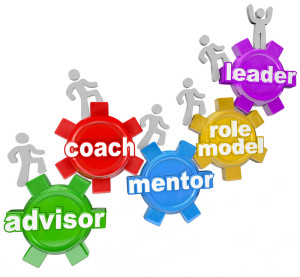My commitment to developing next generation leaders is something I’ve often talked and written about. That commitment is as strong as ever. 
This week I started a 10-month formal mentor program through the NEHIMSS chapter for two different mentees. We’ll talk every other week for 30 minutes focusing on their goals for the mentorship. A few weeks ago, I started my newest coaching engagement with a seasoned IT leader. We are in the early stages of this process, including gathering input from peers. We’ll talk twice a month for an hour with assignments in between. And I’m finalizing a presentation focused on lessons in leadership to deliver virtually in early November to the management team for a CIO colleague at a large academic health system. He brings in an industry expert 6 times a year to share their views and help educate his team.
I’m impressed with the formality and structure of the NEHIMSS mentor program – it appears to be a great model for other chapters and organizations and has evolved since the program was first started in 2014. Mentor and mentee applications are submitted, the mentorship committee then reviews them, makes the matches, and communicates to the pairs with supporting materials including a FAQ and a list of Do’s and Don’ts. Both parties sign a mentorship partnership agreement that includes the mentee’s goals and the roles of the mentor and mentee for each goal.
I have provided professional coaching services for many health IT leaders over the past 7 years. And I have served as both an informal and formal mentor to many during my decades long health IT career. While both have value, coaching and mentoring are different.
“Mentoring involves a developmental relationship between a more experienced mentor and a less experienced partner, and typically involves sharing of advice. Coaching is assisting leaders to perform, learn, stay healthy and balanced, and effectively guide their teams to successfully reach desired goals and exceed individual and organizational expectations. Coaching leaders enables them to close the gap between who they are and who they want to be.” — from Linkage on Coaching Leaders
I encourage people to find a mentor or multiple mentors – look for someone who you consider a role model in your field or in your organization. Ask them if they would be willing to spend some time periodically talking with you and providing guidance and encouragement. If you have the opportunity to apply for a mentorship program such as the NEHIMSS chapter one, do so.
Beyond having a mentor, you may consider working with a professional coach. Doing so should be considered an investment in you whether your employer is willing to pay for it or you need to cover the cost yourself. Just like your gym membership and the time you spend working out is an investment in you, so too is your professional development. Working with a coach is an investment in you.
If you think that you or someone on your team could benefit from a leadership or career coaching engagement, please reach out to me to discuss your specific needs and to explore what a tailored approach might look like. If I’m not the right person, we have several other advisors at StarBridge Advisors who could serve as your coach.
Related Posts:
